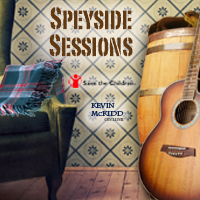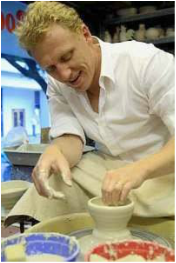June 15th - Speyside Sessions:
http://thespeysidesessions.com/
For a preview of the tracks on this project: http://www.7digital.com/artist/speyside-sessions/release/the-speyside-sessions
Recorded live in a house on the banks of the River Spey last winter, 14
tracks made the final cut. All songs contained on this charity project reflect
the varied styles of Scottish folk music as well as the communal spirit with
which this group of friends and players came together to make good music and to
support Save The Children.
Ella1967 (Forum Moderator)
| Track list: Muckin' O'Geordie's Byre Both Sides of the Tweed Charlie Is Ma Darlin' The Water Is Wide (O' Waly Waly) The Faerie Dance Farewell Tae Tarwathie Iaia Ghlinn Cuaich Westlin' Winds The Lea Rig The Barnyards O'Delgaty John Anderson Raggle Taggle Gypsy Diane of Pitgaveny These are My Mountains | * Muckin' O'Geordie's Byre ~ This song is said to have originated in the northeast of Scotland. The song is a bothy ballad, which refers to songs farmhands sang to pass the time after their work was done for the day. Many of the songs were about life on the farms on which these men worked. Some claim the song to be written by Scottish poet Robert Burns, others claim the song predates him. Regardless, the comic lyrics shine. * Both Sides of the Tweed ~ This song is said to be about the Treaty of Union between Scotland and England which took effect May 1, 1707. Several versions of this song have been recorded by artists including Richard Gaughan (Proboards works against me typing the abbreviated version of Gaughan's first name, which is what he goes by, lol.) This song has also been recorded by Capercaillie and Mary Black and performed by many others, just check YouTube for the proof. This song's authorship is debated. It is considered by some to be attributed to, or collected by, Scottish author and poet James Hogg, who also famously wrote the novel 'The Private Memoirs and Confessions of a Justified Sinner.' It is also attributed by some to Robert Burns. Gaughan contemporized the song in 1979 after the Scots returned a majority in favor of a separate Scottish Parliament but the vote was vetoed in the UK Parliament. * The Water Is Wide ~ This is a widely covered song with contemporary popular versions from Pete Seeger, Bob Dylan and Joan Baez, Charles Lloyd, The Seekers, Cowboy Junkies, James Taylor, Luka Bloom, Eva Cassidy, Peter, Paul, and Mary, and many others. The song's topic is love and its many challenges, how it wears over time, sometimes well and sometimes becoming wounded. This song has its roots in several different songs with similar meters that date from at least the 1700's. It is related to the Scottish song 'Waly, Waly, Gin Love Be Bonny' first published in 1724 - 1727. The song 'Jamie Douglas' is a related narrative as are 'Arthur's Seat Shall Be My Bed' and 'The Distressed Virgin.' * The Fairie Dance ~Duke Ellington apparently once said 'there are only two types of music that swing - jazz, and Scottish music.' He was most certainly talking about reels such 'The Fairie Dance,' which on Speyside Sessions prominently features amazing fiddle work by Paul Anderson. This sprightly track is often referred to as 'Largo Fairie Dance' and is credited to composer Nathaniel Gow, with further variations to it having been made by composer James Scott Skinner. The reel is mentioned as a musical form as early as the 16th century in Scottish music and is used for many set dances. In Highlandand Island Scotland, it has been traditional for the bride and groom to dance a foursome reel with their best man and bridesmaid. click read more to continue ---> |
Ironically, Scoggie wasn't a whaler but a miller from near Aberdeen. The British whaling industry was diminishing around this time, yet steam power made it possible for ships to sail further north to open sea and better opportunities.
The song tells of the challenges presented by working within a failing industry at home, the protagonist having to ply his trade elsewhere, all he leaves behind, and the harsh realities of the new land in which he will find himself.
Variations of this song's lyrics have been published; the derivation of the tune to which it is set is best known in connection with a song called 'The Green Bushes.' This song has popularly been performed and recorded by Judy Collins.
* Iain Ghlinn' Cuaich ~ This song of unrequited love features lyrics in Gàidhlig (Scottish Gaelic)
* Westlin Winds~ As I said in an earlier post about one of the Speyside Sessions songs, it all comes back to Burns...and Westlin Winds is no exception. This song, one of Burns' earliest, dates from the late 1700's and is sung to the tune of 'I Had A Horse, I Had Nae Mair.'
The lyrics are a complicated mix of pastoral allusions, political references, and Burns' own romantic, yearning heart.
The verses begin as a paean to some of the avian species residing in Scotland's stirring landscape, listing off the moorcock, the partridge, the plover, and the woodcock thriving amidst the heather and the waving fields of grain. The song segues into a few lines of protest against the slaughtering guns of sportsmen which is also seen, by some, as a veiled political reference.
The moorcock, a red or black male grouse, was often used as a symbol to denote Bonnie Prince Charlie. (See notation about 'Charlie is Ma Darlin' earlier in this thread for more references to him.)
In a later verse, Burns also mentions 'Peggy dear' which is believed to refer to Peggy Thomson of Kirkoswald with whom he is said to have been infatuated at the time.
* The Lea Rig ~ This song is another link back to Robert Burns. The song is an old one and is said to have been built upon by Edinburghpoet Robert Fergusson who is also said to have influenced Burns.
Burns expanded the lyrics to the song in 1792 but was reportedly unhappy with the results. He wrote of his efforts, 'I immediately set about trying my hand on it, and, after all, I could make nothing more of it than the following, which, heaven knows, is poor enough.'
The term Lea Rig refers to the part of an in-use farm field which was left in pasture, which has its roots in the practice of dividing up land to be shared among a farm's tenants. The term for this type of land use was runrig, originating from the Gaelic roinn-ruith, which translates as 'division run.' The Lea Rig is also the name of a traditional Scottish dance.
* Barnyards O' Delgaty ~ This song is another bothy ballad, which refers to songs farmhands sang to pass the time after their work was done for the day. Many of the songs were about life on the farms on which these men worked. (See the previous note in this thread re: Muckin' O'Geordie's Byre, also a bothy ballad.)
This one tells of the experience, somewhat enhanced and exaggerated, of a farmhand in Delgaty, located in Aberdeenshire.
It was typical for unmarried farmhands to be hired on for periods of time at hiring fairs, also called feeing fairs or feeing market, as described in this tune. The largest of these fairs was said to be The Turriff (Turra) market in Aberdeenshire. The town would reportedly swell with thousands of people during the feeing market.
* John Anderson, My Jo ~ This is another tune attributed by many to Robert Burns. Some argue this is a traditional tune which predates Burns, others say he collected (or wrote) a bawdy version, which was published posthumously, and a gentler version shown here which was published in 1789.
Speyside Session fiddler Paul Anderson alludes to the bawdy history of this tune in a Q&A on www.thespeysidesessions.com
Anderson was asked 'What is your abiding memory from the sessions?' One of the memories he mentions refers to this song: 'Iain
Robertson reciting far and away the dirtiest version of 'John Anderson My Jo' I've ever heard (and I've heard a few.)'
The words of the version shown here tell the tale from the feminine perspective of a longstanding relationship and the toll time takes on both the relationship and the bodies we inhabit. It's an enduring love song which is said to have been a gift to Burns' wife, Jean
Armour. Donny O'Rourke of BBC Scotland said this of the tune: 'this tender tribute to the resilience of wedded love, even into the late winter of life, was written by a man who having at last, and only reluctantly 'settled down', was coming quickly now to see what a committed couple could mean, and give to each other.'
* Raggle Taggle Gypsy ~ Versions of this border ballad date back to at least 1720. Variations in words and tune connect this track to other songs including 'Johnny Faa' and 'Gypsy Laddie.'
The song tells the story of a Lord's wife who leaves her husband and home for the love of a gypsy. The Lord gives chase and upon catching up to her he beseeches her to return to the life of the finer things he can provide for her. She refuses claiming to prefer the love of her
* Raggle Taggle Gypsy O.' The roots of this song reside in a supposedly true story about John Kennedy, 6th Earl of Cassilis and his wife, Lady Jane Hamilton. Lady Hamilton was said to have fallen in love with Johnny Faa before marrying Lord Cassilis. Faa, described as both a Scottish gypsy and an outlaw, returned for her after she was married and the pair fled. Lord Cassilis caught up with them, Faa was hanged and Lady Jane Hamilton was imprisoned for the rest of her life.
The Waterboys recorded a version of this song for their disc 'Room To Roam.' Music writer Nick Tosches wrote about the song's roots in
his book 'Country: The Twisted Roots of Rock 'n Roll.'
* Diane of Pitgaveny ~ This original track, composed by fiddler Paul Anderson, was included on the session. Both Paul and his bride Shona mentioned the song in their Q&A sessions on the official Speyside Sessions site: www.speysidesessions.com
Musicians who participated in the sessions were asked the following question: What is your abiding memory from the sessions?
Shona's thoughts on the track: My cousin, Diane Lunan, had her birthday during the sessions and Paul composed a tune called Diane of Pitgaveny for her. When he played it to her she was just overjoyed. Paul and Ali ended up recording it for the cd and whilst they were recording Diane and I sat on the sofa grinning like Cheshire cats the whole time! Just a lovely moment.
Paul's thoughts on the track: There’s quite a few great memories but a handfull which stand out were, Kevin performing “Westlin Winds” with my wife Shona, Iain Robertson reciting far and away the dirtiest version of “John Anderson my Jo” I’ve ever heard (and I’ve
heard a few) and performing my composition “Diane of Pitgaveny” for Diane Lunnan as a surprise birthday present.
* These Are My Mountains ~ A traditional tune which tells the story of a Scottish native who leaves home, seeking the promise of a new and as yet unexplored world, only to find that home has everything for which he was searching. Some say this traditional tune had words put to it by in the 1960's by Jimmy Copeland.
Join in the thread on our forum and discuss these songs with Ella1967 Read more








